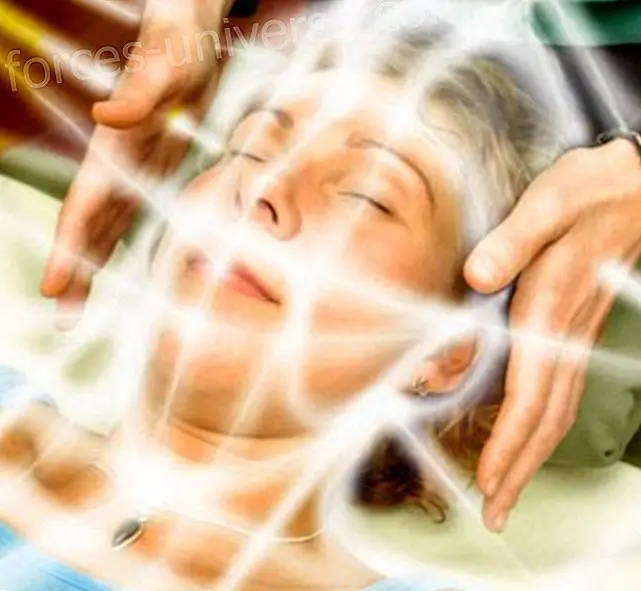 Can you imagine yourself in the fire of a house? What would be your reaction?
Can you imagine yourself in the fire of a house? What would be your reaction?
Your character is built around certain basic experiences and the assumptions about yourself and the world that derive from them. This organization is expressed through your psyche, the shape of your body, your breathing, the type of relationships you have, the choice of your profession and the environment in which you move, your behavior .
If a house burns, the psychopathic character is rolled up, spits in the hands and starts to mitigate the fire. The psychopath will pick up and try to mitigate it, but not for a long time. And the other characters? What will the schizoid do? Surely, he will run confused from side to side and will not know where he is. The oral will run from one person to another, groaning: "Please, please, help me, my house is burning!", And the idea of putting out the fire by itself will not occur to him. And the masochists? they will run from one place to another, whining: “It had to happen to me. It is the third house that burns me. I have it well deserved! ” Of course, the rigid will voluntarily dampen the fire and subsequently be able to repeat and analyze every detail of the action with all precision. And finally, the hysterical guy will shudder at the beautiful image of the flames: "What a frame for him / her to appear, take him in his arms and save him!" Do you feel identified with the way of acting of any of them?
The core of your character, as I have already mentioned, is a deep belief system, which, in most cases, is completely unconscious. But, precisely by being unconscious, it can powerfully influence your life. You stay?
A few weeks ago we talked about the book by Martín Siems "Your body knows the answer", today I focus specifically on its second part, when it comes to character. Wilhelm Reich was the first to relate the characteristic psychoanalytic theory with the body structure and the body's energy fluid. The different types of character described below are intended to help you learn to perceive yourself as a system that is constructed, both bodily and psychologically, around certain primary experiences and feelings and basic belief systems. It is not my intention to classify you within one of the types of characters or get into a section, and, of course, you should not do it either. Prepared?
SCHIZOID CHARACTERWhen the schizoid passes, you will soon notice feelings of poor clarity and confusion during the conversation.
 His basic feeling tells him that the world is not safe, but dangerous and that a catastrophe can occur at every moment. The schizoid feels distant and strange, like a being from another world.
His basic feeling tells him that the world is not safe, but dangerous and that a catastrophe can occur at every moment. The schizoid feels distant and strange, like a being from another world.
His primary experience is insecurity, fear and threat. Perhaps for having had a near-death experience at birth, perhaps for having a hostile or reserved mother, her belief system expresses something like: "I'm not sure here, " "I can't feel safe, " or " I am not welcome. ”
The theme that defines the schizoid is safety .
The schizoid's strategy is to try to withdraw its energy from the world around it and withdraw into itself.
On the body level : The person who always carries his energy inward, will have cold feet and hands. The whole body gives the feeling of being little alive and tense; especially in the joints many tensions will be noticed. Tensions in the neck and neck area "divide" the head and body. Breathing is shallow and is hindered by large tensions in the diaphragm area.
At the psycho-emotional level : The schizoid cannot show and take out his feelings, the world is too dangerous for it. However, he will often not perceive all these tensions, since his consciousness has shifted from body to head. It will tend not to look in the eyes and avoid contact.
His strong point: He could be defined as creative.
Personal development: improve contact with the ground, generally increase your body sensation and reconnect you with your body. Probes that express what for the schizoid could be a psychological food, would be: “Here you can feel safe. We are glad you are here. You have the right to be here. You are ours. You're welcome."
ORAL CHARACTERIf you now come across the oral character, you will recognize him because he arouses compassion and a desire to help.
 Its theme is food in its broadest sense, everything that has to do with receiving and satisfying needs.
Its theme is food in its broadest sense, everything that has to do with receiving and satisfying needs.
His primary feeling is: I do not get it and I do not receive what I need . The oral baby is in bed and screams; He needs something, and nobody comes. Perhaps the mother is not there, or she feeds him according to a fixed schedule; The fact is that the baby does not receive what he needs. He screams and screams, until, finally, he resigns.
His deepest belief system, with which the oral character goes around the world: the world is a place where you never receive what is needed.
The oral has organized his entire personality in such a way that, nonverbally, he is asking others to help and support him.
On the body level: The chest is sunk, the stomach is somewhat out, the knees curved back, so that at least it supports its skeleton, and the head is somewhat inclined forward. His whole body expresses: `` But if nothing makes sense, '' and lack, since you never get enough air.
To the psycho-emotional level: Actually, the oral receives a lot; He is so endearing and needy, that he receives many caresses. But you cannot accept and feel them.
Oral's strengths are its social capabilities. capture the needs of others.
Personal development: Learn to accept what is received. Enjoy. Breathe. Probes with which one could work, would be: You can get it. You get everything you need. I will not abandon you. The cosmos takes care of you.
PSYCHOPETIC CHARACTERWhen a psychopath passes by you, he will recognize you because you will feel fear.
The issue of psychopathic character is power .
 His primary feeling is: fear of being oppressed or exploited, if he is weak. Someone exercised power over him, the mother almost always treated him authoritatively or conquestly and used him for his needs.
His primary feeling is: fear of being oppressed or exploited, if he is weak. Someone exercised power over him, the mother almost always treated him authoritatively or conquestly and used him for his needs.
His strategy is: "Before I let myself be manipulated, I prefer to manipulate myself."
On the body level: Your body has an imposition pose, all its energy tends up and has a bad base on the legs and feet. Even the stomach is stretched up. The body is formed as if it were always in danger of being oppressed and dwarfed.
At the psycho-emotional level: It is very difficult to establish contact at the same level. You feel more comfortable in the role of the leader. The others cannot get too close to him. This could touch your feelings.
His strong point: He does not let himself be struck down immediately by feelings and can overcome burning situations.
Personal development: Accept their vulnerability. Your probes: “You are important to us. We respect you. I do not want to oppress you. I'm on your side. ”
When you meet a masochist, you will recognize him because you are going to get angry. Somehow he will get angry, and on top of that you will be ashamed of it, because a person so kind and who also suffers so much should not cause you anger.
The theme of the masochistic character is the lack of freedom.
 The main feeling: "The worst always happens to me", "I'm worthless" and "I'm not free". The masochist has only been loved when he was good and obeyed. Almost always, he has been manipulated and deceived, and not always by an authoritarian mother, but often by a warm, but overprotective mother.
The main feeling: "The worst always happens to me", "I'm worthless" and "I'm not free". The masochist has only been loved when he was good and obeyed. Almost always, he has been manipulated and deceived, and not always by an authoritarian mother, but often by a warm, but overprotective mother.
The masochist has developed the strategy of passive resistance, that is, enduring until others leave.
At the body level: It is strongly formed, has a contact with the ground that is almost too good and a fleshy and bulky body, which looks like a tree trunk and expresses: "You don't move me". He has the constant impression that he is being pushed from behind, and therefore, his back leans heavily backwards.
At the psycho-emotional level: His life is manipulated by anything, by his wife, his mother, his children, his work, and, in general, everything imaginable except for himself. It has a barrier when it comes to acting: it is hard for you to be active and work.
The strength of the masochist is resistance. Hold on relationships that others would have left long ago; it supports for years jobs in which others would endure at most a week. When you have him as a friend, it is forever.
Personal development: You have to learn to express your anger, to fight in a relaxed way, to move and make decisions. Probes that express what the masochist needs, would be: “Life belongs to you. You are free to do what you want. I love you too when you are intrusive (or angry). You can be happy. ”
The first four dramas of the character are formed with the first person of reference, that is, most of the time, the mother. The last two dramas, the rigid and the hysterical, are formed somewhat later and have more to do with the father.
RIGID CHARACTERThe rigid issue is performance .
His primary experience is to want to please his father; He wants to be recognized by him.
 He constantly has the feeling: "I have to do more, " "I have to be even better."
He constantly has the feeling: "I have to do more, " "I have to be even better."
The rigid strategy is to try harder. "I just have to be a little better, and then maybe I'll be fine." And his whole life will be a single effort, but he will never be satisfied with himself. Because while the phrase "I am not well, as I am" is present inside, no feat, however great, will give the impression of being well done.
On the body level: It tends to support your entire body forward, to throw your shoulders back and cup your back. In addition, he has constant pressure on his body, as if someone in front of him was preventing him from showing what he knows how to do. In general, the rigid has the best proportioned body of all characters, because his problem is also the last to appear. But the great tension of the muscles, which extends throughout the body, makes life difficult.
At the psycho-emotional level: Constantly active: build something, solve problems. There is no rest, there is no relaxation, there is no letting go, but effort, tension and the attainment of something. But you are never satisfied, you cannot sit and enjoy your work.
Personal development : What the rigid needs is relaxation and permission not to have to do anything. That is when it can melt and open to the deep sadness of not having been accepted as it is. That is why they will be positive probes for the rigid: I love you, just as you are. You don't have to do anything to love you. You are fine as you are. You no longer have to strive.
HISTORY CHARACTERYou will recognize him because he will speak more and more excited and shrill every time and shake his hands vehemently, until he has made everyone nervous and nobody listens to her.
The theme of the history is to be noted.
 The primary situation of the history is the same as that of the rigid. The little girl does not feel accepted by her father. But the strategy of the little girl is not to give up yet, as the rigid does, but to call more attention.
The primary situation of the history is the same as that of the rigid. The little girl does not feel accepted by her father. But the strategy of the little girl is not to give up yet, as the rigid does, but to call more attention.
There is continually a latent fear of being rejected. And the girl develops a strategy to get attention; It is noted through the scandal, explains things excitedly, is all feeling and exaggeration, all in the hope of being more heard and accepted.
At the body level: This primary sensation manifests itself in the body with a separation between the pelvis and the trunk. The pelvis is usually developed with adult and female forms, but the trunk has remained childish. Up here is the little injured girl who has to protect her heart. In the chest is the latent fear of receiving a blow from the front, that is, to be rejected again and again.
The inner life of the hysterical character is romantic. And this is also the strength of this character: it has a great intuition to capture vague environments and sensations and a good talent to be an actress. With the hysterical character, we usually feel welcomed with heat, although with a positive tension and excitement. It never bores us.
Personal development. Probes for the hysterical character would be: “You are fine, just as you are. You don't have to do anything to love you. I see you, I understand you, I listen to you. You can leave with peace of mind. I will pick you up."
How do you feel now? What has the description of the six types of character given you? How do you feel it in the chest and abdomen? You shouldn't feel obligated to qualify, but instead wanted to confront you with a change of perspective. These descriptions can take you to see your life from a great distance. It is as if we went down from the stage of our lives to the armchair, to contemplate our work from there. Maybe we get a little scared, maybe we get a little sad, maybe we want to laugh too, but this vision from a distance will also help us to consciously and clearly perceive the things we do again and again. And from the patio of seats it is easier to imagine new management orders, if we want to modify and improve our work. That is, with this new way of perceiving we do not identify with ourselves as actors on the stage, but with us as directors of the entire work.
Normally, we are identified with our paper, but now you can abandon this identification. Because if we accept not to identify, we can laugh at ourselves and free ourselves emotionally. Action!
Who you are?






